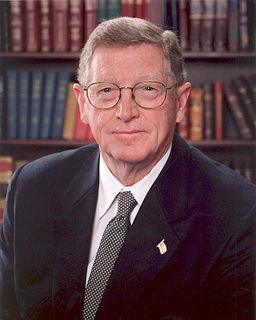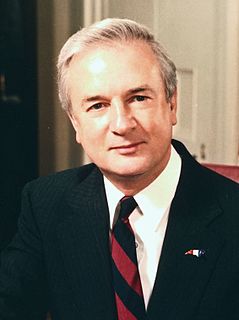A Quote by Ron Paul
We have to restore confidence that the marketplace can deliver services as well as it can goods.
Quote Topics
Related Quotes
?ertainly to the extent that we talk about not just procurement in the sense of acquiring goods from the rest of the economy, even to the extent that it is possible to bring Black players in areas where we say we need to raise the capacity of these organisations to deliver services, it is a very important part.
Foreign policy is about trying to deliver for them the best possible economic benefits, the chance to travel, to study, to work, the opportunity through trade to be able to sell their goods and services and as much peace and security so they can live and bring their kids up so they don't have to fear war.
I have read a great deal of economic theory for over 50 years now, but have found only one economic "law" to which I can find NO exceptions: Where the State prevents a free market, by banning any form of goods or services, consumer demand will create a black market for those goods or services, at vastly higher prices. Can YOU think of a single exception to this law?
Free election of masters does not abolish the masters or the slaves. Free choice among a wide variety of goods and services does not signify freedom if these goods and services sustain social controls over a life of toil and fear – that is, if they sustain alienation. And the spontaneous reproduction of superimposed needs by the individual does not establish autonomy; it only testifies to the efficacy of the controls.
Like gold, U.S. dollars have value only to the extent that they are strictly limited in supply. But the U.S. government has a technology, called a printing press (or, today, its electronic equivalent), that allows it to produce as many U.S. dollars as it wishes at essentially no cost. By increasing the number of U.S. dollars in circulation, or even by credibly threatening to do so, the U.S. government can also reduce the value of a dollar in terms of goods and services, which is equivalent to raising the prices in dollars of those goods and services.


































